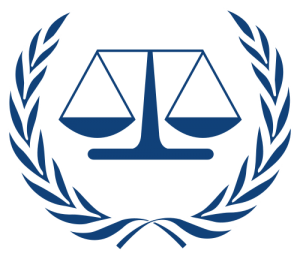The International Criminal Court: Why Is the United States Not a Member?

The International Criminal Court prosecutes individuals who have committed genocide and other major war crimes. Over 120 countries support it, but the United States is not one of them.
AHA Legislative Associate Matthew Bulger theorizes on why:
Last week I attended a congressional briefing on the International Criminal Court (ICC) and human rights, hosted by the American Bar Association and the Washington Working Group on the International Criminal Court, a coalition group of which the American Humanist Association is a member.
The ICC is a permanent court established by the Rome Statute to prosecute persons for the most serious international crimes: genocide, crimes against humanity, and war crimes. The Rome Statute is an international treaty that has been ratified by 122 countries, and has been signed by an additional 31 countries that have not yet ratified it, with the United States being one of the few countries not to ratify or sign the statute. Unlike other international courts, the ICC can only prosecute individuals and not organizations or governments, which allows the court to focus on high-level government officials that are typically exempted from international prosecution for their government’s illegal actions.
The main speaker at the event was Stephen Rapp, who currently serves as the U.S. Ambassador-at-Large for Global Criminal Justice. Rapp started his address by expounding on some of the reasons why the U.S. hasn’t been a more active participant in the ICC, while also taking time to describe some of the many ways that the U.S. currently works to protect the human rights of people across the world.
One of Rapp’s key points was that long-standing political and philosophical traditions in our country have prevented us from joining the ICC. The most important of these traditions, according to Rapp, is the belief by Americans that we can better help suffering people than the international community, and that our ability to help others without changing our national identity or culture will be threatened by joining an international institution that has its own laws and regulations which come from non-American societies. Additionally, Rapp felt that a certain degree of misinformation, such as the common but mistaken belief that the ICC is a part of the much-maligned UN, has prevented American policy makers from advancing the relationship between the U.S. and the ICC.
The U.S. has been able to help the court in a limited manner, often by referring international human rights matters that come before the Security Council of the United Nations to the ICC. It is important to note that our government is prevented by certain laws such as the American Service-Members’ Protection Act of 2002 from providing direct monetary assistance to the court, but Rapp shared that we have been able to help the court by sharing intelligence on fugitives and providing logistical support to the ICC on a case by case basis.
The message I took away from the briefing is that the American people and its government are extremely concerned with helping people across the world that suffer from violations of their human rights, but that like all issues in politics there is a substantial disagreement on how we can best do this while preserving our own political traditions. There is also a concern from some American lawmakers that if we as a country join the court, individuals from the global community will punish America for its aggressive foreign policy by using the ICC to prosecute American soldiers and other military actors.
It seems that even with these misgivings, we as a country will still try to help the court to the maximum degree that is allowed by our own laws. Whether or not we will change these laws to allow greater American participation in the ICC is another matter entirely.
